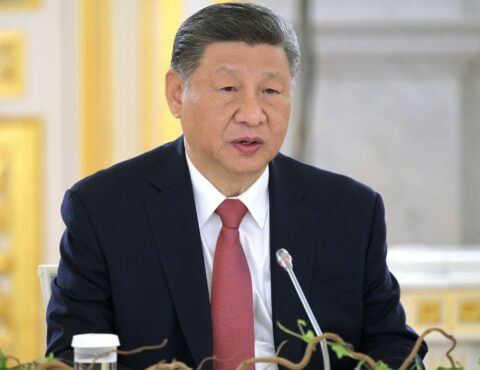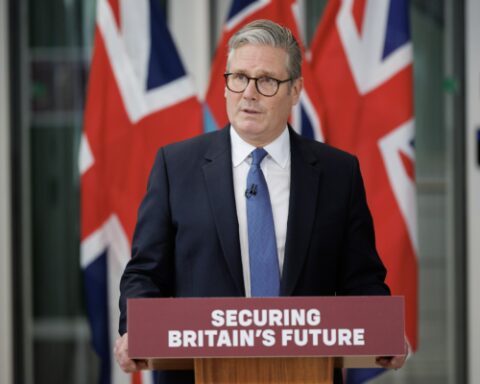Elon Musk said Wednesday that his artificial-intelligence firm, xAI, will collaborate with chip giant Nvidia and a Saudi Arabian partner to build a vast new data center in the kingdom, signaling a deepening technology partnership between U.S. innovators and a government eager to position itself at the forefront of AI development. The announcement coincided with Crown Prince Mohammed bin Salman’s visit to Washington.
Speaking at the U.S.-Saudi Investment Forum, an event at the Kennedy Center attended by business leaders and government officials, Musk and Nvidia Chief Executive Jensen Huang outlined plans to join with Humain, Saudi Arabia’s AI company, on a facility expected to consume roughly 500 megawatts of power — enough energy, they said, to supply several hundred thousand homes for a year.
President Trump is slated to address the summit, where he is expected to highlight both Saudi Arabia’s expanding investments in the United States and the growing AI partnership between Washington and Riyadh.
For Musk, the project marks a significant expansion of xAI’s footprint in the Middle East. The region has become increasingly attractive to U.S. tech companies, offering ample land, low energy costs, and sovereign-wealth funds willing to underwrite large-scale infrastructure. Nvidia, along with Advanced Micro Devices and Qualcomm, announced billions of dollars in investments in Saudi Arabia earlier this year when Trump visited the kingdom. Many firms are also striking similar arrangements in the United Arab Emirates, which has aggressively courted AI developers.
The U.S. government is expected to approve the export of advanced AI chips to Humain and its American partners in the near future, according to people familiar with the discussions. The move would allow work begun earlier this year to move ahead. Officials familiar with the agreement said export approval would include safeguards designed to prevent any of the technology from reaching China, a concern that has shaped Washington’s broader approach to AI development.
Because of those national-security considerations, companies such as xAI and OpenAI must seek federal approval before sending chips to the region. All are competing intensely to build data centers large enough to train increasingly powerful AI systems, making access to high-end chips a critical advantage.
The Washington event also underscored how quickly corporate attitudes toward Saudi Arabia have shifted. Many companies that distanced themselves from the kingdom after the 2018 killing of Washington Post journalist Jamal Khashoggi have since resumed engagement. Trump on Tuesday said the crown prince “knew nothing” about the murder, contradicting an assessment by the CIA.
Other major firms are moving into the Saudi data-center market as well. Executives from private-equity giant Blackstone and Cisco Systems said at the forum that they, too, are investing in projects with Humain.
Blackstone Chief Executive Steve Schwarzman said his firm would begin constructing AI data warehouses in Saudi Arabia — a type of investment it had not previously considered — highlighting the extent to which the kingdom’s ambitions in AI are drawing in new partners.
[READ MORE: Poland Blames Russia for Rail Attack as Tusk Warns of Escalation]







